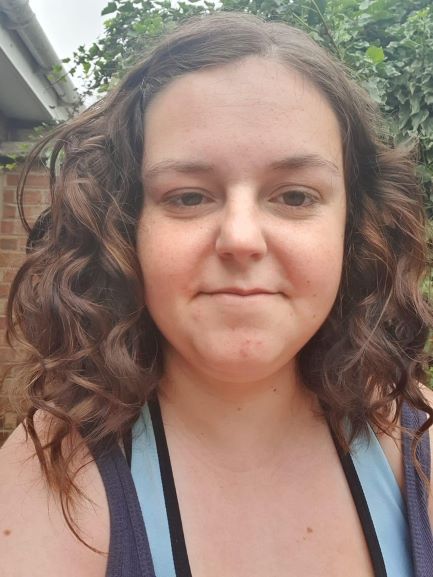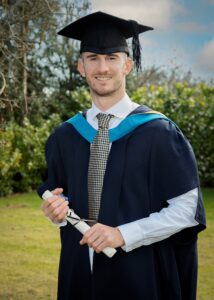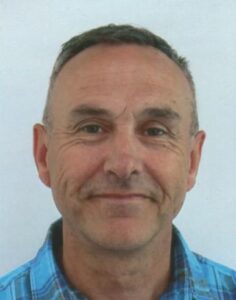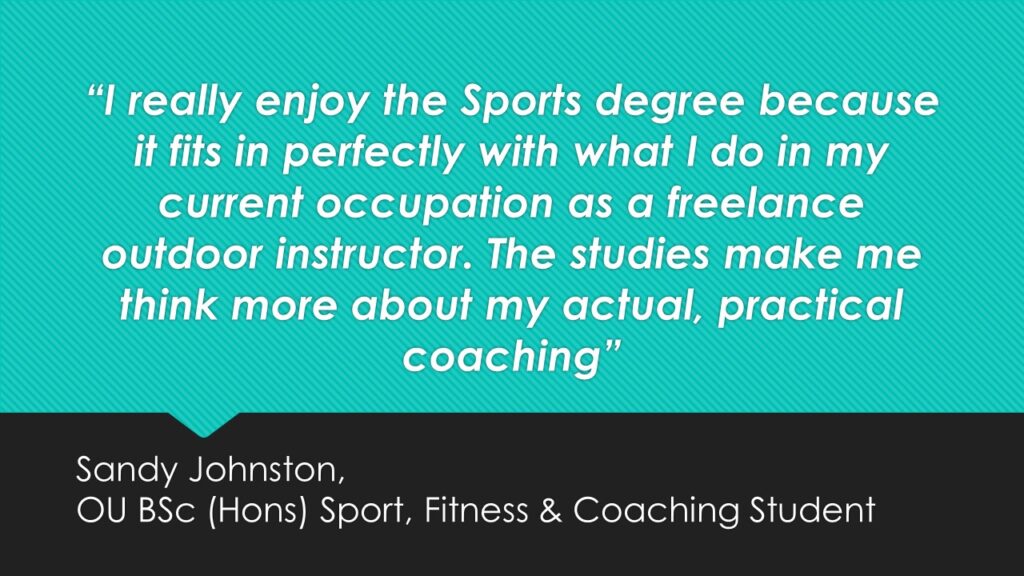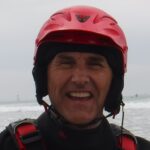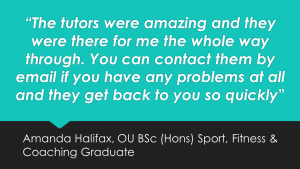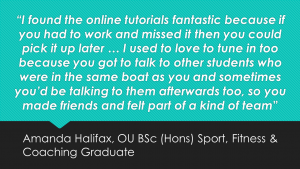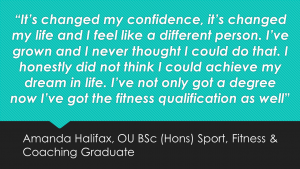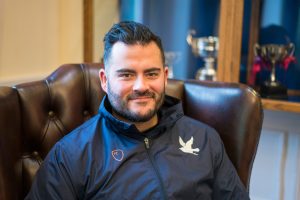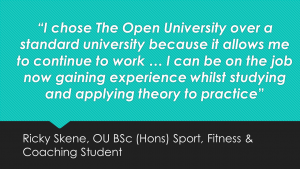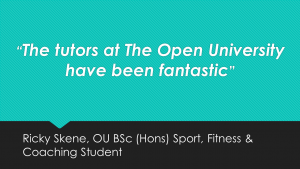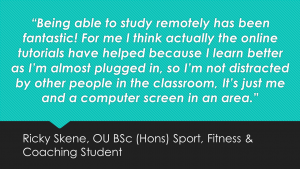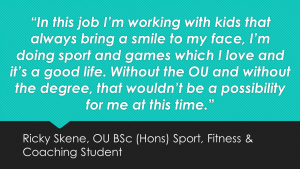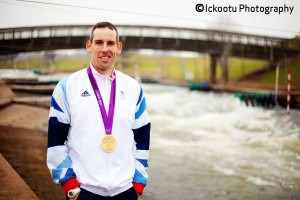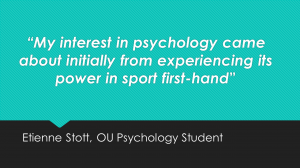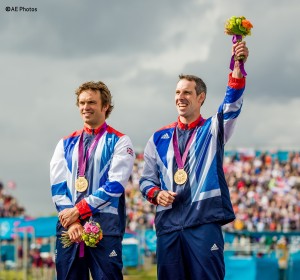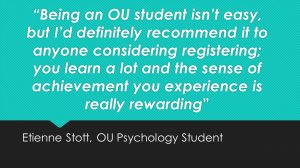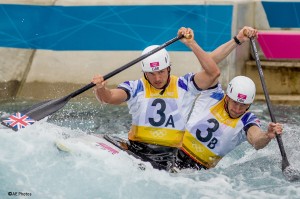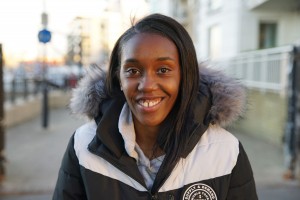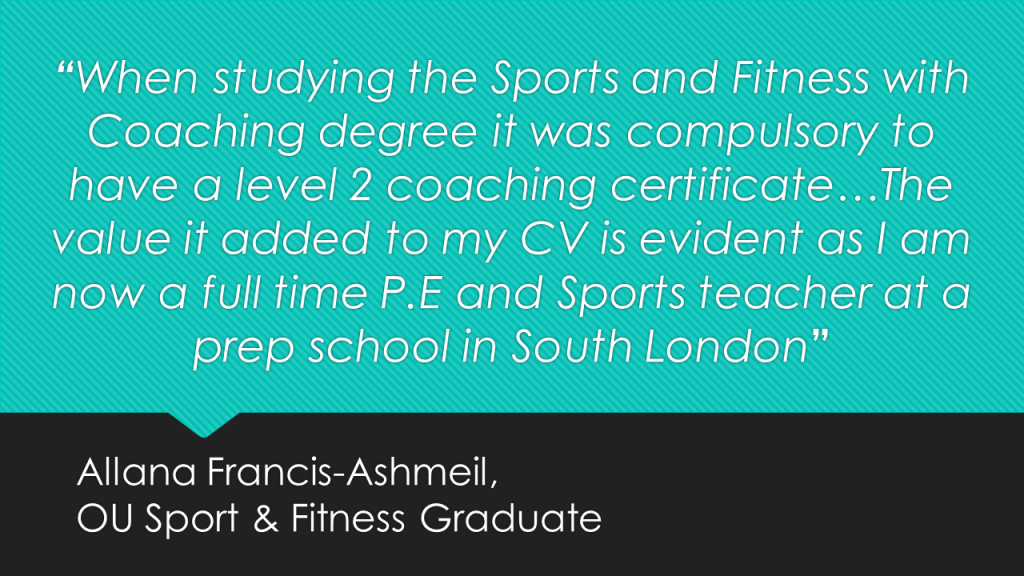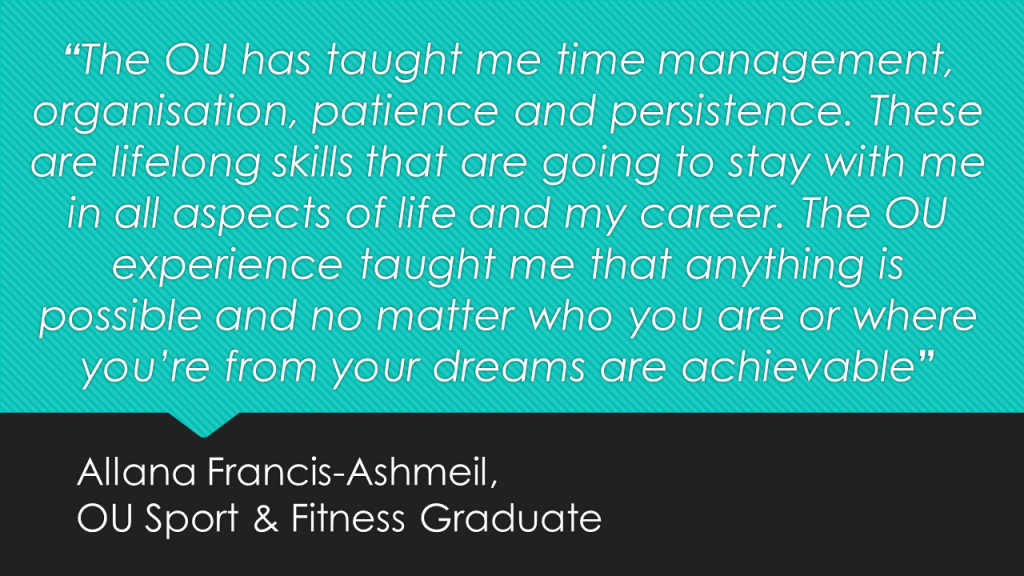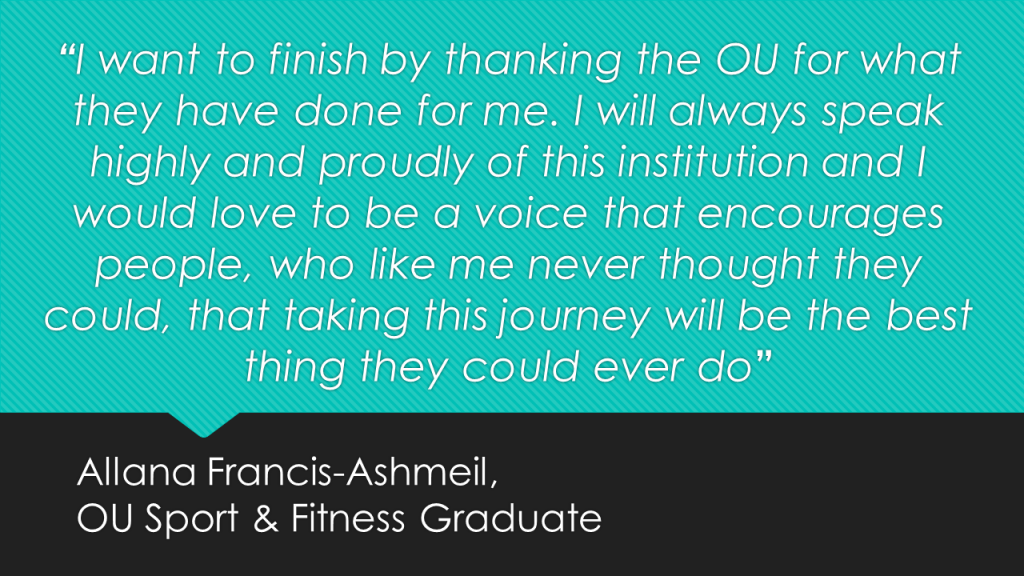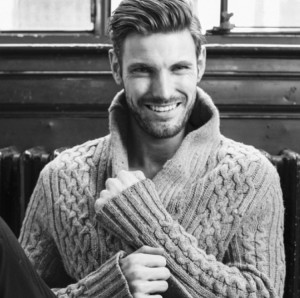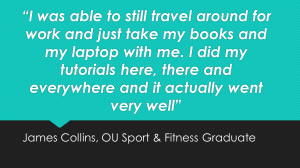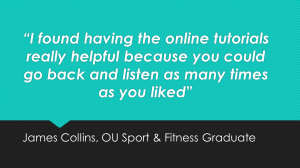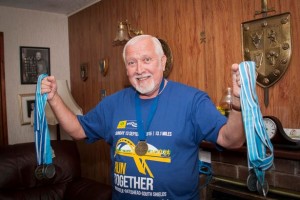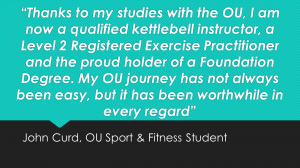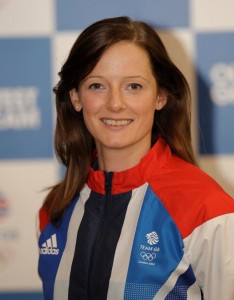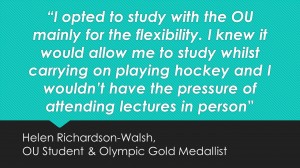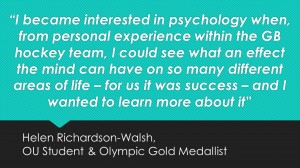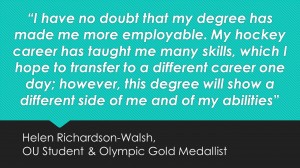By Yasmin Reeve
An Audio recording of this blog article can be found on this link.
Firstly, I want to welcome you to my blog post. I am a student with Open University studying a Sports, Fitness and Coaching degree. I am a student that is studying with a learning difficulty – dyslexia. I make use of software to enable me to complete my study, more specifically I use a screen reader and dictation software. Recently I had a really productive conversation with a tutor about how this affects me as a student and some of the things that I specifically need when it comes to TMA feedback, as well as explaining the process that I go through in order to write my TMAs. This has led to me making this blog post with a few main focuses. Mainly I want to reassure students that they aren’t alone when studying using the software previously mentioned and how they can go about getting support. Secondly, I want to give educators a glimpse into my world and its affect it has on me as a student to help them better support students who are also using this software.
Starting at the OU
I found out I was dyslexic whilst sitting my GCSEs at secondary school. I was consistently told that I would never amount to anything in my life and never achieve higher education, so I gave up on the education system. I went out to work full time but as the years went by, I realised that I still wanted to be studying and achieve a degree. I very quickly realised for many reasons that a brick university wouldn’t work for me and then found out about the OU and thought ‘I can do this’. I went through the process of applying for Disabled Student Allowance (DSA) and was really lucky to get an understanding assessor. My assessor went through what I struggle with and then suggested the use of dictation software and screen readers. I’d never used them in my life, so I was really excited to be sold the idea that this puts me on an equal level as my peers who don’t have dyslexia. DSA went through training with me on how to use the software and it was at this moment my heart sank a little. I realised the true reality of the fact that this software doesn’t suddenly eliminate my problem of really struggling to read and write, I realised just how much of a lengthy process it would be for me to get anything done and there was a point where I thought ‘there is no way I am going to be able to do this, I’m not smart enough or even capable of doing this!’ But I was already signed up and I’d gone through all the paperwork and assessments so figured I had nothing to lose from giving it a go. If it didn’t work out, then the teachers back in secondary school were right I would never achieve higher education! The module website finally opened up and I had all this software, so I gave it a go. I can remember my first conversation with my tutor about my needs as a student and I was too embarrassed to tell them about the fact I was using a screen reader and dictation software. It’s only this year – my third year of study – that I braved even telling my tutor about the struggles of using this software and how they could adapt what they were doing to help me succeed more.
Writing a TMA
The process of writing a TMA for me is a ridiculously lengthy process with so much back and forwards between different documents and trying to dictate to my laptop what it is that I want to write. I think for people who don’t experience dyslexia imagine being asked a question on a topic that you know nothing about and being given a short time period to answer that question on the spot. Your brain is trying to come up with something to say but whilst you’re saying that you’re thinking about where you are going next with that sentence, and then suddenly a fact pops into your head relating to that topic but you know you need to say it instantly or you will forget it. That is what I go through in order to write my plans for TMAs but also to actually write my TMAs. One big problem with this is that I am mid- sentence and waiting for it to come up on my laptop screen in order to then add in the next point that had popped into my brain, so everything becomes one jumbled mess and it’s not easy for me to go back through and edit everything I’ve effectively just written into some sort of structure!
I am sat there having my screen reader read back to me what I’ve written whilst trying to keep up with my eyes at the speed its reading at so that I can stop it to move the last few sentences around and then get the screen reader to read it out again to me to see if it now makes a little bit more sense. (To give you an idea on how lengthy this process is my screen reader only reading to the end of the last sentence took 9 minutes and I was struggling to visually follow along at that speed!). The way that a screen reader works is that every word or sometimes even letter is recorded individually, and it places them all together to read what’s on the screen. You end up with random pauses and that can lead you to think punctuation might be needed there when it isn’t, it’s just a flaw in the screen reader. Or sometimes you think you have added in the punctuation needed due to the screen reader having read that piece of text as if the punctuation was there.
One big problem for me is that I get the screen reader to read out three sentences of my plan because that’s realistically all I can remember to then switch documents to start dictating the TMA based off the three sentences I’ve just heard, then I get the screen reader to read back what I’ve just dictated and go through this process repeatedly! Writing references is also ridiculously difficult to dictate, making sure that you are saying things like “comma, full stop and dash” in the right places and making sure that it has got the spelling correct of a name that you have just said. It’s hard! Writing my first TMA quite literally took me a week of working on it every single day for many hours at a time. The light at the end of the tunnel is that I have got quicker with using the software but am I at the equivalent of someone without dyslexia and who isn’t using this software – not even close! But, at this point though part way through my third year of study I have proven to myself that it is possible to achieve my goal of getting a degree and that my hard work and effort is paying off and I am doing it, and I am proving all the teachers at secondary school wrong.
My advice to students and tutors
So, if you’re a student reading this and just starting your degree, stick with it – you’ve got this! If you’re a student who is part way through your degree and struggling speak to your tutor about this and speak to DSA to see if they can suggest anything to you and don’t be embarrassed about it, take pride in who you are and everything you have achieved so far! If you’re a student just about to start your degree make sure to tell your tutor you’re using this software and don’t be afraid to communicate your needs and update them as you move through your study, tell them what was useful in the feedback you got and what wasn’t useful and suggest ways for them to adapt.
If you are an educator and are reading this, try and find some dictation software and try to use it. Go through a TMA using a screen reader to truly get a bit more of an understanding what your some of your students are going through. Give more specific feedback than “punction needed here or reference not correct”, actually explain what’s needed and why it was needed or incorrect. Open up communication between yourself and your student to understand the process that they are potentially going through in order to write their TMAs and show a level of understanding of the process they may be going through. Remind your students that you truly appreciate and see their attempt at answering TMA questions. Lastly make sure to ask your students what they need from you as their tutor, make the effort to ask them about if everything made sense in the feedback that you have given and offer that time to explain things in more depth if needed.

